
Heatwave ahead! Your health depends on your water balance!
We are facing a century-summer. Temperatures of 45° mean extreme stress on your circulatory system. Without air conditioning, dangerous circulatory problems can quickly occur. The solution? You need to make sure you are consuming plenty of fluids.

On hot days, people can sweat more than 2 liters per hour. Drinking water alone is not enough. Therefore, we have listed some foods that can help you replenish your fluid intake.
Add cucumbers to your meals
On this list, you will find many long green vegetables that can help you consume sufficient fluids, but none of them are as effective as cucumbers. According to the US Department of Agriculture (USDA), cucumbers have a water content of 96.73%.

They are not only an excellent source of water but also contain potassium, phosphorus, magnesium, and even calcium. Add a little something extra to your summer beverage by slicing cucumbers and letting them sit in water for a few hours before consumption.
It even has "water" in its name
There are not many fruits that are as juicy and flavorful as watermelon. It may be difficult to cut it into the right size and shape, but once you have consumed it, the effort is definitely worth it.

According to the USDA, watermelons have a water content of 91.45%, which is not far from cucumbers. In addition to water, this tasty fruit contains vitamins B, C, A, zinc, copper, and potassium. Make sure to eat as much as possible at your next summer barbecue before it's gone!
Even the king likes carrots
With a water content of 88.29%, you can enjoy many benefits by consuming Bugs Bunny's favorite snack. Carrots are also available in colors like white or purple.

When you eat a carrot, you can expect a large amount of folic acid, fiber, potassium, and vitamin K. Their benefits are extensive.
Don't forget to eat your broccoli
Baby trees or broccoli are among the most beneficial and hydrating vegetables out there. You might not initially think of them when considering foods to hydrate with, but you should start to see broccoli in this light.
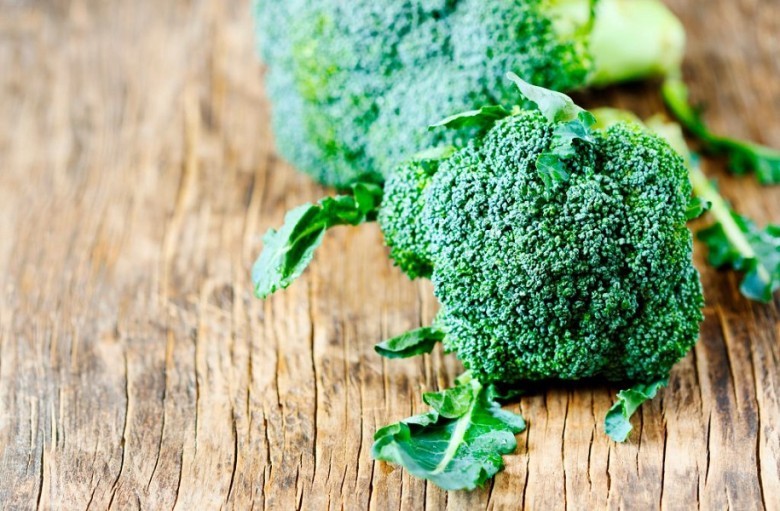
With a water content of 89.3%, you can't go wrong with munching on these baby trees. With several different antioxidants and being a great source of fiber, potassium, as well as vitamins K and C, adding broccoli to your diet would not hurt.
The sweet sensation of a melon
Did you know that cantaloupe melon is also known as watermelon? Besides this fun fact, they are also made up of 90.15% water and have plenty of sweetness to satisfy any sweet cravings.

A cantaloupe melon is rich in vitamin C and fiber, making it a perfect summer snack. Similar to carrots, a melon is orange, which means it contains beta-carotene, the substance that your body converts into vitamin A. We are sure you will enjoy your cantaloupe melon even more next time!
Sip on skim milk
It is not called skim milk for nothing. When you drink this product, you do not get the same amount of nutrients. You can enjoy a glass on its own or use it as a useful ingredient for cooking and cereal.
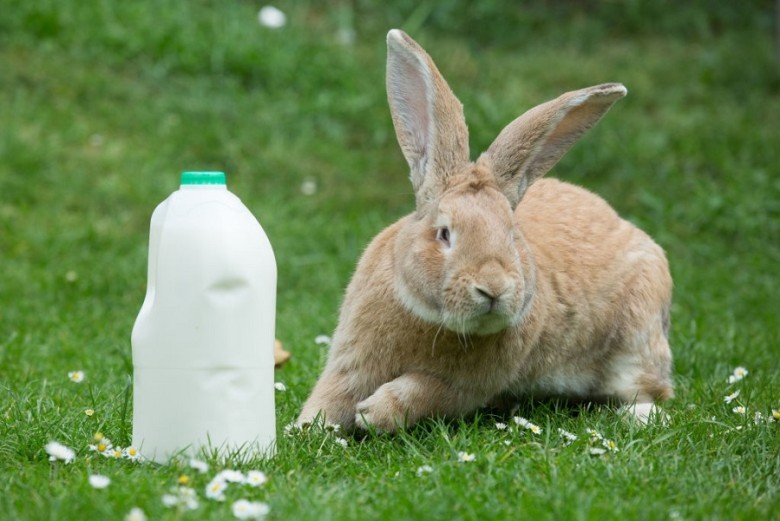
With a water content of 90.84%, skim milk is also an excellent source of vitamin D and calcium. Consuming skim milk is an excellent way to maintain fluid balance if you want to add a different beverage to the mix instead of water.
Pineapple has a lot of benefits
Being one of the juicier fruits, don't be surprised if biting into a piece of pineapple results in a burst of liquid. They are rich in nutrients, including potassium, manganese, vitamin C, B, and magnesium.
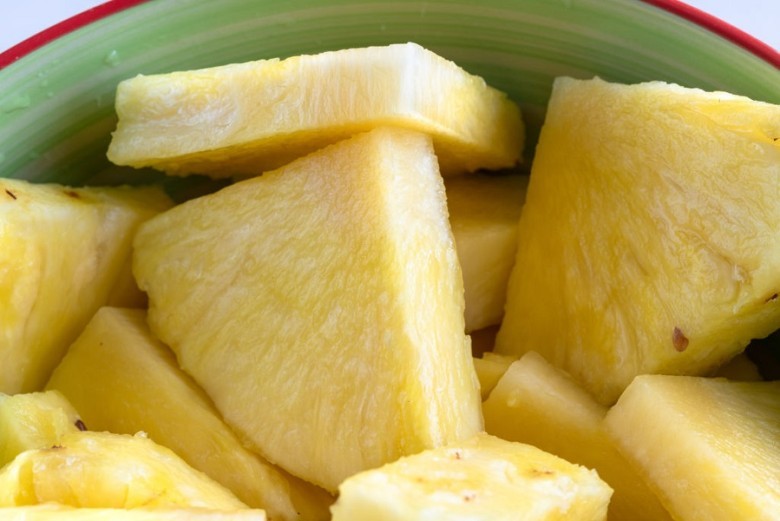
If that's not enough, pineapple has a water content of 86%. Another cool fact is that it contains bromelain, an anti-inflammatory enzyme. If you weren't a fan of pineapple before, these facts might have changed your mind.
An apple a day
There's a saying, "An apple a day keeps the doctor away." Well, that saying dates back to 1913, so don't expect to be completely safe from seeing a doctor. What you can expect is a healthy source of water (water content of 85.56%).
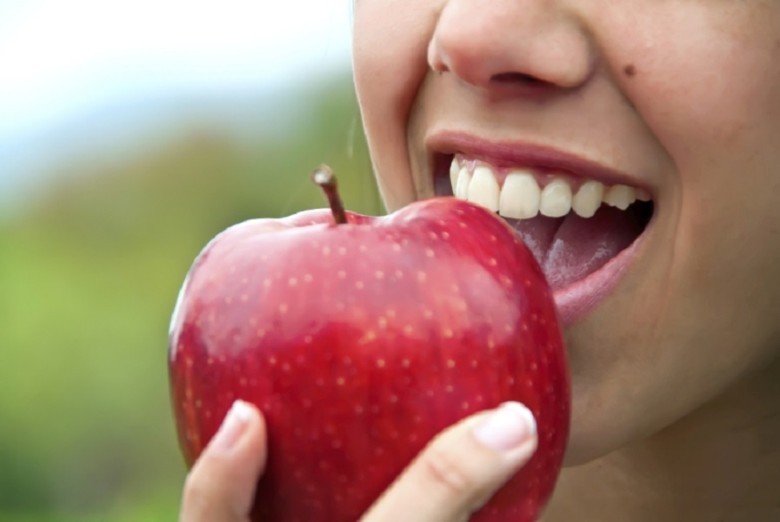
You'll stay hydrated and have an excellent source of vitamin C, fiber, and antioxidants. Apples come in various forms, colors, and crispness, but you can always count on them for health benefits.
Enjoy some strawberries
Having one strawberry can easily lead to having another, and before you know it, you've eaten the whole box. Don't worry, because you're consuming a fruit with a water content of 90.95%. You're basically eating a lot of hydrating fruit and getting a bunch of other nutrients at the same time.

The antioxidants in these red berries fight free radical damage like nothing else. Being low in calories and rich in fiber, you can bet that strawberries bring you many benefits.
Always a fan of kale
Kale is a nutrient-rich vegetable with a water content of 89.63%, according to the USDA. This green machine also packs a high dose of vitamin A, C, and K. That alone should be enough to convince you that kale is useful beyond just its hydration factor.
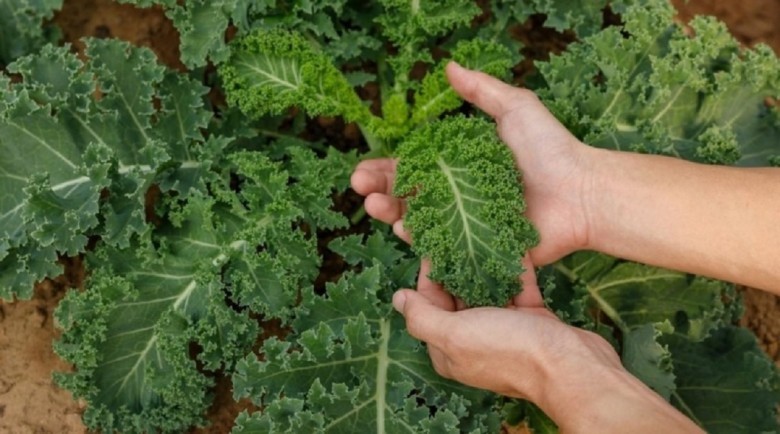
Kale also contains anti-inflammatory phytonutrients and is a sensational plant-based source of iron and B vitamins. Oh, and did we mention it contains omega-3 fatty acids too? Fuel up on kale whenever you can.
Hydrate with honeydew melon
Honeydew melon falls into the same category as cantaloupe melon, so they're both sweet melons. The difference lies in color and water content. USDA lists honeydew melons as having a water content of 89.82%.

The fruit is also a great source of potassium, as well as vitamin C and K. Consuming it also provides your body with magnesium and folic acid. One of the downsides is that honeydew melon has a high sugar content, but it's natural sugar.
Green zucchini - simply wonderful
Zucchini is an interesting vegetable for several reasons, primarily because of its ability to help the body in unique ways. What we mean are the antioxidants it contains, like lutein and zeaxanthin.
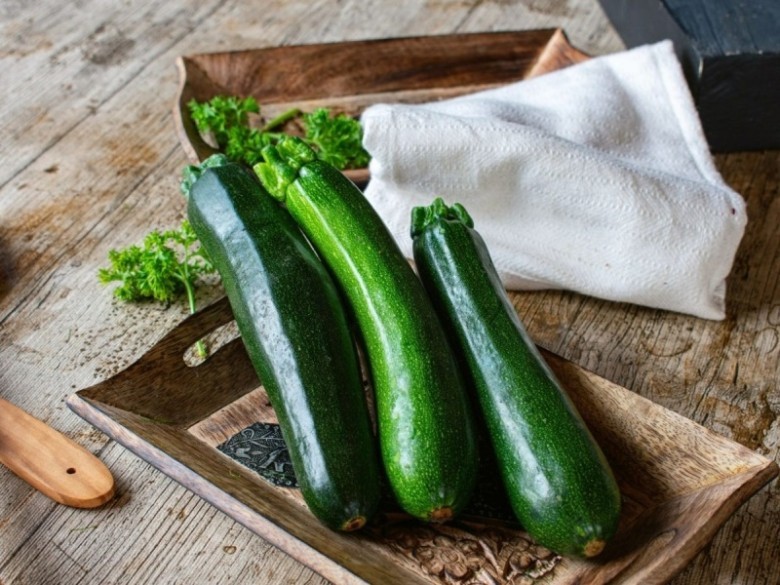
These antioxidants can help combat damage to your body's DNA. Did we forget to mention its water content of 92.73%? This level of hydration and potential DNA support is unbeatable. Plus, it contains potassium and vitamins A, C, and K.
No wonder Popeye is thrilled
Popeye could be in the worst battle of his life. He could be just moments away from his demise, but after consuming his spinach, things look entirely different. That's because spinach has a handful of benefits.
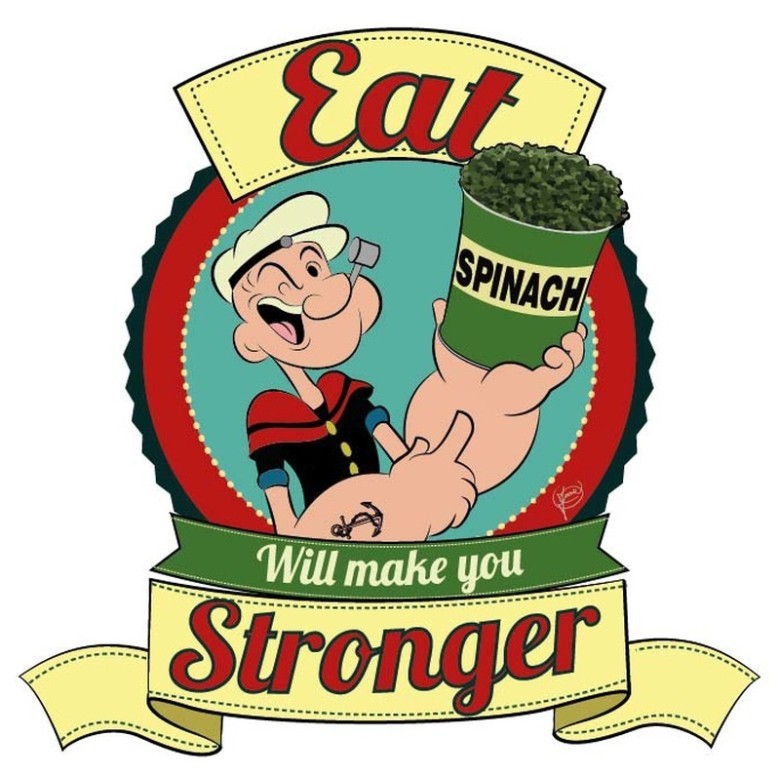
It's rich in fiber and low in calories, making it a guilt-free food to add to any meal or mix into a delicious green juice. Spinach has a water content of 91.4% according to the USDA.
Iceberg lettuce is always a good choice
There are different types of lettuce (we'll get to another type soon), but iceberg lettuce is one of the best when it comes to hydration. Making a salad with a base of iceberg lettuce and garnished with celery, carrots, and cucumbers is almost like drinking water.

According to the USDA, iceberg lettuce has a water content of 95.64%, so you're basically consuming H2O when you eat it. It also contains potassium, zinc, and both vitamins K and A.
Learn to enjoy tomatoes
They're a great addition to burgers, but did you know that tomatoes are made up of 94.52% water? That's as steep as a fruit! It's also rich in fiber, potassium, folic acid, and vitamins C and K. If you're looking for a fruit that helps fight cell damage, look no further than a tomato.

It contains lycopene, which is helpful in this area, and according to Poison.org, they are also the main source of lycopene in the United States.
Take a bite of a juicy peach
There's a reason why peaches are such a juicy fruit, and that's because they have a water content of 88.87%. This sweet and delicious fruit also contains numerous vitamins, including A, C, E, and K.

Not only do you get a good amount of hydration and vitamins, but you can also fill your body with potassium and phosphorus. Whether you enjoy them as a snack or add them to salads, you'll be in for a treat.
Treat yourself to enough romaine lettuce
We promised you another type of lettuce, so here it is. In terms of water content, romaine lettuce comes in at 93.47%, not far behind iceberg lettuce. Compared to iceberg lettuce, romaine lettuce offers more nutritional benefits.

If you're the type who prioritizes the color of your vegetables, darker shades of green tend to be healthier. With romaine lettuce, you can expect a great dose of fiber, folic acid, and vitamins A, C, and K. In general, you can't go wrong with vegetables!
Initially spicy, with a sweet finish
Oranges are a true fruit delight. After accidentally squirting some orange juice in your eye while peeling it, you're ready to indulge in the zesty, sweet deliciousness! With a water content of 86.75%, it's not a bad way to stay hydrated.
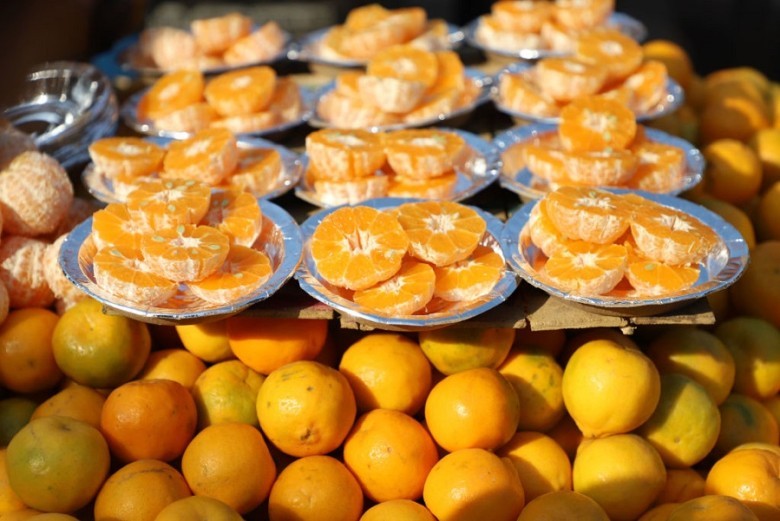
The special thing about citrus fruits is that they can help absorb iron from other foods. Not only do they contain a lot of vitamin C, but oranges are also rich in fiber.
Last but not least, good for our beloved friends
There are many things pet owners can do to ensure their dogs are happy and healthy, but one of the most important is to give them nutritious and delicious food. While there are great wet and dry foods specifically made for our canine friends, dog owners may not be aware that there are many human foods that dogs can also eat.

On the other hand, there are some human foods that should never be consumed by dogs as they can have life-altering consequences. This includes foods that are both permissible and taboo for dogs.
Keep them away from chocolate
One of the foods that should never be kept near dogs is chocolate. This sweet treat may be a pleasant dessert for humans, but Healthline admitted that chocolate contains theobromine and caffeine. Dogs cannot metabolize these chemicals and will experience severe symptoms if consumed.

Symptoms may include vomiting, dehydration, internal bleeding, muscle tremors, seizures, and, in severe cases, can be life-threatening. There are varieties that cause more harm, such as cocoa powder and unsweetened baking chocolate, because they are more concentrated.
White rice helps with stomach issues
Similar to humans, dogs can also experience stomach issues, especially when they consume the wrong foods or undergo drastic changes in their diet. One human food that can help with stomach issues in dogs is cooked white rice.
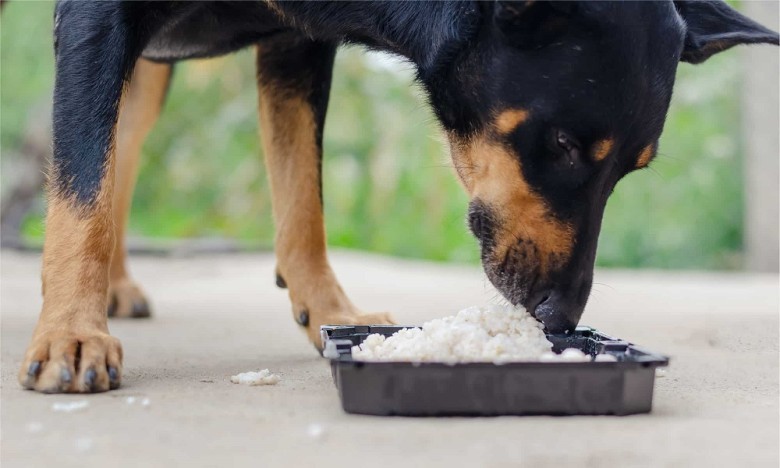
After digesting the bland white rice, dogs' stools become firmer, providing them with the nutrients that may be lacking in their regular food. The carbohydrates from rice are also a good source of energy, especially for older dogs. Be sure not to confuse this with brown rice, as it has a higher glycemic index that leads to an increase in blood sugar.
Avoid avocado at all costs
There are many different opinions on whether dogs can eat avocados or not, but more credible sources advise owners to keep them out of their dogs' diet. The most common reason experts advise against giving avocados to dogs is that they contain a fungicidal toxin called persin.

Persin is present throughout the various parts of the avocado and can cause vomiting and heart blockages and even be life-threatening. The high fat content in avocados is also harmful, as it can cause stomach and pancreas issues and lead to weight gain.
Let the carrots come
Cyber Pet refers to carrots as one of the best foods to incorporate into a dog's diet. This orange vegetable is packed with vitamins, fiber, antioxidants, and more. Not only does it have many health benefits for dogs, but it also works great as a reward for good behavior.

If you have a teething puppy, a frozen carrot can serve as a refreshing chew toy to alleviate pain and contribute to better dental health. It's best to cut the carrots into bite-sized pieces before serving to prevent choking.
Why ice cream is harmful to dogs
Even though it may be tempting to treat your dog to ice cream on a hot day, they actually shouldn't eat it. Many dogs are lactose intolerant as they are weaned off milk after the first few months of life.
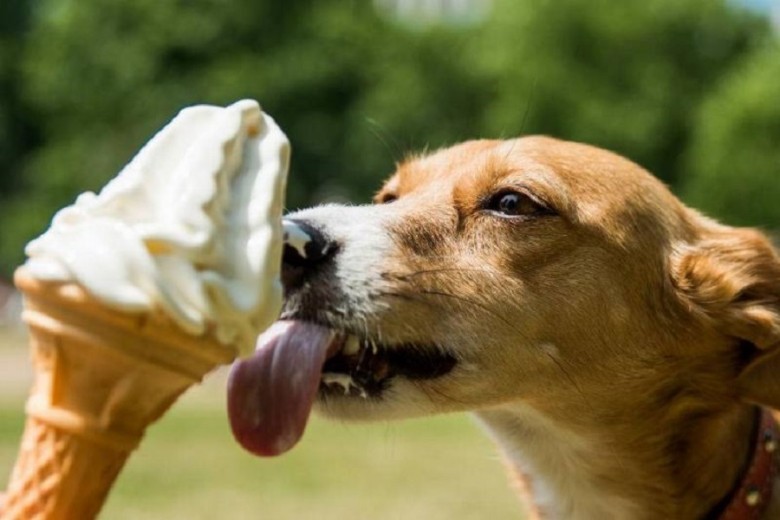
Consuming ice cream or similar dairy products can lead to bloating, gas, constipation, vomiting, and more. Ice cream is also filled with sugar or sweeteners, which are highly toxic to dogs. Fortunately, there are a few ice cream alternatives specifically made for puppies, such as Frosty Paws.
Here comes the peanut butter!
Peanut butter is something that makes your dogs smack their lips all day long, but there are a few things you should know before giving it to them. It can be a healthy treat when practiced in moderation. Veterinarians recommend giving them plain, unsalted peanut butter, as additional ingredients like salt and sugar can have harmful effects.
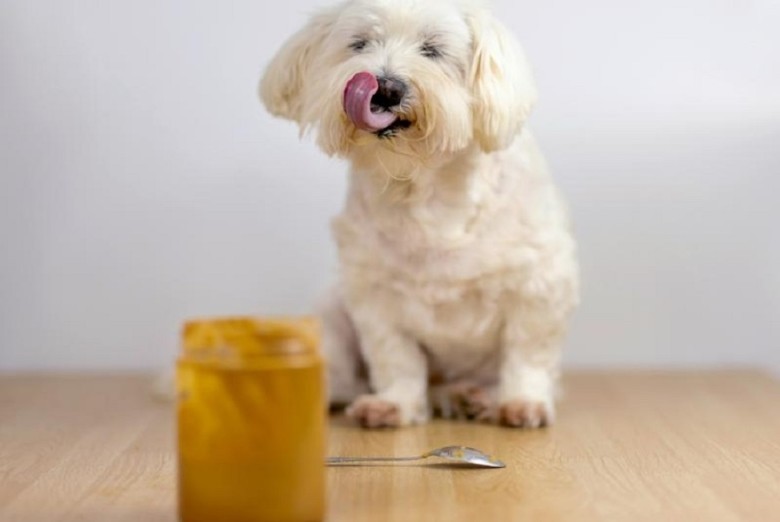
This creamy snack can be used as an aid in medication intake or as a reward for good behavior. Just keep in mind that peanut butter contains high amounts of fat and calories, which can lead to weight gain and stomach issues.
Grapes and raisins are an absolute no-go
Sometimes a dog can recover if it consumes a small amount of a certain food it shouldn't eat, but that's less likely when it comes into contact with grapes or raisins. These are highly toxic to dogs and can cause kidney failure and premature death.
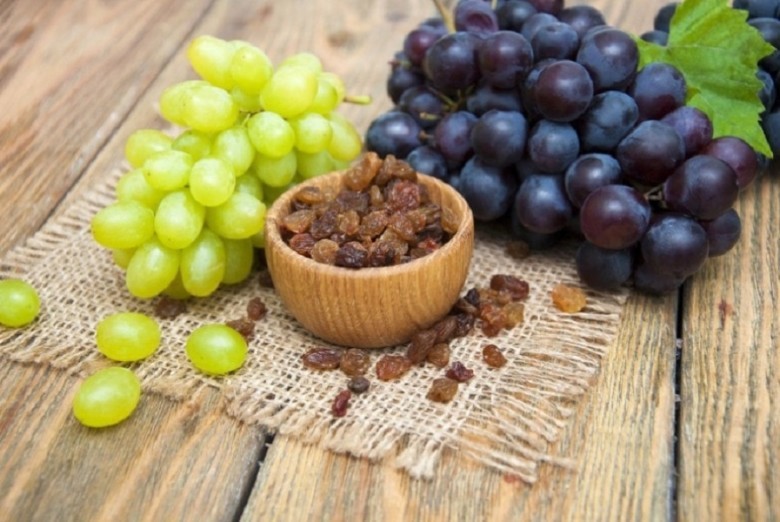
If you're unsure if your dog has eaten grapes or raisins, there are some symptoms that indicate this. These include loss of appetite, weakness or lethargy, vomiting, abdominal pain when touched, dehydration, increased urination, and more. If any of these symptoms occur in your dog, it's best to consult a veterinarian.
It's time to boil some eggs
A common human food that can have a positive impact on a dog's diet is eggs. They are highly protein-rich and contain essential amino and fatty acids. Eggs are great for stomach issues and nausea; however, there are a few things you should know before preparing them for your dog.
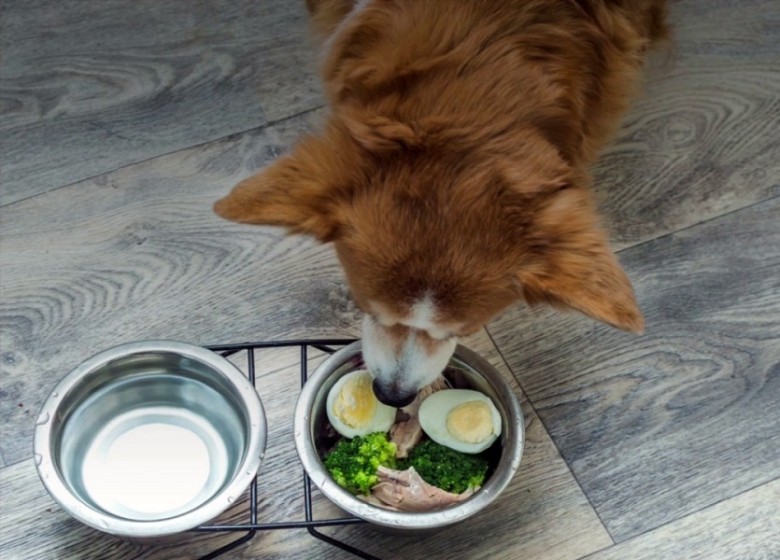
Eggs should never be served raw as they contain salmonella and can lead to biotin deficiency, which affects the skin, digestion, metabolism, and cells. They should also be prepared without milk or butter since most dogs are lactose intolerant.
Don't cry over onions
According to the Pet Poison Hotline, onions are one of the most toxic foods for dogs. Whether raw or cooked, they can wreak havoc in their bodies, such as causing their red blood cells to burst.

When that happens, it disrupts oxygen supply and prevents them from breathing. The toxins are present in all parts of the onion and are also found in onion powder, garlic, shallots, leeks, and chives. Signs that a dog has ingested onions include lethargy, loss of appetite, collapsing, reddish urine, or pale gums.
Put a few shrimp on the grill
Dogs shouldn't consume large amounts of shrimp, but having a few occasionally has been shown to have health benefits. Shrimp contains vitamins B12 and B3, antioxidants, and phosphorus, which support metabolism, energy, circulation, bones, and brain function. They are also low in fat, calories, carbohydrates, and cholesterol.

Before feeding them to your dog, it's best to thoroughly steam them and remove all shells to prevent choking. Avoid cooking them in oil or butter as this can create unnecessary fats that can be harmful to the digestive system.
Let your dog eat turkey
According to the American Kennel Club, turkey is rich in several nutrients such as protein, riboflavin, and phosphorus. Many American families eat it for Thanksgiving, and it's also a popular choice for sandwiches. If you have extra turkey, prepare to give some to your dog.

Eating turkey is fine for dogs; however, there are some conditions. It must be simply cooked. This means you need to avoid butter, salt, pepper, herbs, or spices as these can disrupt the digestive system and harm the pancreas. Before feeding, it's important to check for bones to prevent choking.
When life gives you lemons
Dogs cannot tolerate the consumption of lemons or limes. The peels of these citrus fruits contain a substance called psoralen. Even the ingestion of small amounts of psoralen can lead to vomiting and gastrointestinal issues. However, more severe symptoms occur when larger amounts are consumed, including muscle tremors, difficulty walking, liver failure, and death.

Purina claims that when a dog eats something toxic, it tastes bitter because that's how they survived before being domesticated. Dogs may still eat lemons because the sour taste does not necessarily deter them.
Chop some broccoli
Dogs don't necessarily need to consume large amounts of fruits and vegetables to stay healthy, but it doesn't hurt to incorporate some into their daily meals and snacks. Dogs can eat broccoli both raw and cooked, as it is rich in fiber and vitamin C and low in fat.

Broccoli should always be served plain without oil or spices and cut into small pieces to avoid choking. The florets of broccoli contain isothiocyanates, which can cause digestive issues when consumed in large amounts. Combining broccoli with some white rice and lean protein can make a healthy meal.
Avoid macadamia nuts
Many dog health websites list macadamia nuts as one of the foods that should be avoided due to the numerous risks. Experts are still trying to determine the exact compound that causes the negative side effects, but even a small portion of macadamia nuts can be lethal.

Additional symptoms can include vomiting, loss of balance, weakness, hyperthermia, and depression. If you suspect that your dog has consumed macadamia nuts, it is important to contact a veterinarian immediately. If the symptoms are not severe, activated charcoal and detoxification medications may be recommended.
Blueberries help with weight management in dogs
It can be challenging to curb the appetite of an overweight dog, and something that can trick them into thinking they're getting a sugary treat is blueberries. This fruit is packed with antioxidants that can help reduce inflammation and provide the body with several important vitamins and minerals.

Blueberries actually contain very little sugar as they are almost entirely composed of water. Since they are bite-sized, they can be used as a treat and in puzzle toys for dogs. Some studies have found that blueberries can also help older dogs display fewer signs of aging.
Keep your dog away from cinnamon
While cinnamon is not toxic to dogs, it can still have many negative effects. The Pet Poison Hotline mentions that cinnamon and other cinnamon-related foods may cause skin and digestive irritations and damage the inside of the mouth. Inhaling the powder can lead to coughing, choking, and difficulty breathing.
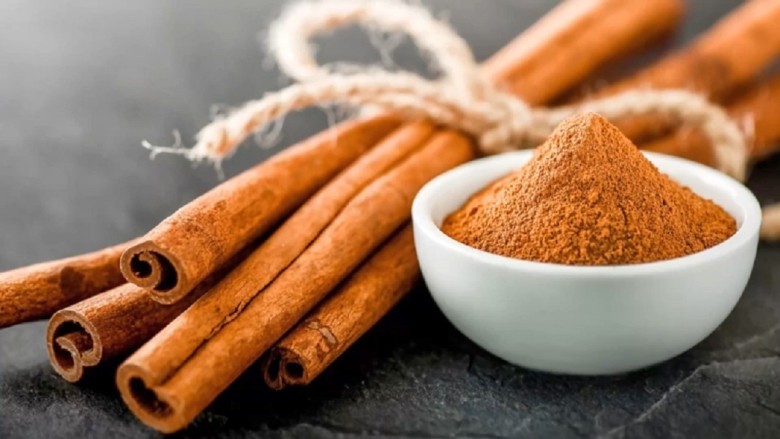
Smaller breeds are more susceptible, as they do not tolerate large doses as well as larger breeds. Consuming cinnamon can also lower a dog's blood sugar levels and lead to vomiting, irregular heart rate, and liver disease.
The great benefits of salmon
Salmon is a staple food for many people and can work wonders for dogs as well. They should only eat it cooked without spices, additional oils, lemon, or butter. It is also important for the owner to remove any small bones that may be hidden to prevent choking.
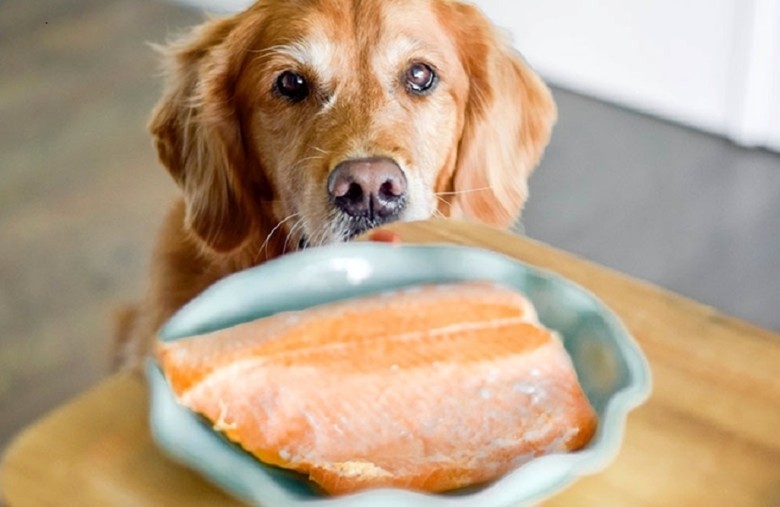
Salmon contains a lot of nutrient-rich components, such as omega-3 fatty acids, which can alleviate inflammation and protect the skin and coat. Dogs that eat raw salmon may be at risk as it sometimes contains toxic parasites that can be lethal.
Garlic does no favors for your dog
Although garlic has proven health benefits for humans, it does not have the same effect on dogs. They metabolize food differently, so consuming garlic can be very toxic to their digestive system. A substance called thiosulfate in garlic damages red blood cells.
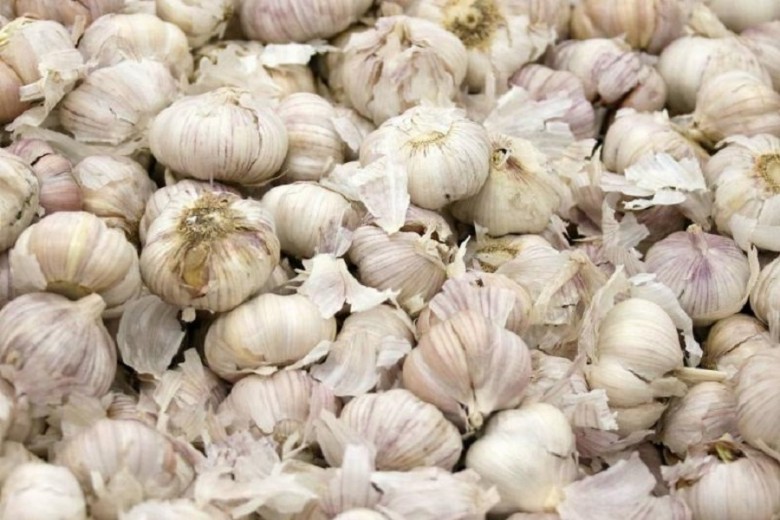
Signs to watch out for if your dog has possibly ingested garlic include rapid breathing, weakness, jaundice, vomiting, abdominal pain, depression, dehydration, and more. Usually, a dog would need to eat a large amount of garlic to feel sick, but every dog tolerates it differently.
Say cheese!
While most dogs tend to be lactose intolerant, cheese is one of the few dairy products they can eat. It is rich in protein, calcium, vitamins A and B, and essential fatty acids. Most veterinarians recommend feeding dog cheese in moderation as too much dairy can cause gastrointestinal problems.

Cheese is also great for motivating your dog's good behavior or as a small snack during the day. Experts emphasize the need for moderation with cheese as its high fat content can lead to fatal diseases in dogs.
What goes wrong when dogs consume caffeine?
According to the Kuakini Medical Center, about 90 percent of Americans consume caffeine daily. It is found in coffee, tea, soda, medications, and more, and is one of the most dangerous threats to dogs.

Caffeine contains a toxin called theobromine, which can cause hyperactivity, restlessness, vomiting, increased heart rate, elevated blood pressure, heart rhythm disorders, tremors, hyperthermia, seizures, and collapse. The side effects are very similar to consuming chocolate in dogs. If your dog consumes caffeine, it is best to consult a veterinarian who can advise on medications to help alleviate their specific symptoms.




















Comments
0 comment